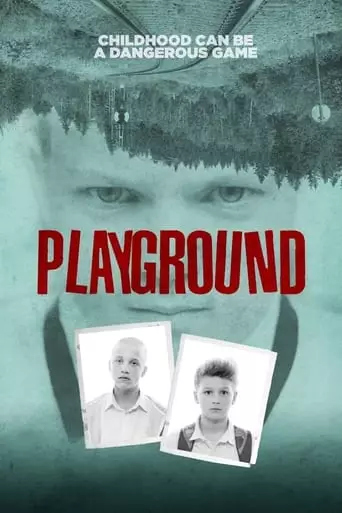
Playground (2016) Watch Online Free
It’s the end of the school year and today is the last chance for 12-year-old Gabrysia to tell her classmate that she has fallen in love with him. She sets up a secret meeting and blackmails the boy to show up. But what was supposed to be an intimate talk spins out of control and leads to an unexpected ending.
Playground (2016), directed by Bartosz M. Kowalski, is a stark and unsettling Polish drama that explores the complexities of youth, innocence, and the potential for cruelty hidden behind everyday life. The film is loosely inspired by the true 1993 case of the murder of toddler James Bulger, exploring how violence, neglect, and emotional trauma intertwine within the seemingly mundane moments of childhood.
The film is set on the last day of school in a small Polish town. It follows three 12-year-olds: Gabrysia, Szymek, and Czarek, who come from different social and familial backgrounds. Gabrysia, shy and emotionally neglected by her mother, longs to confess her feelings for a classmate, Szymek. Szymek, who lives with his disabled father and feels trapped by his caregiving duties, harbors frustration and anger. Czarek, dealing with the chaos of his family life, including a crying infant brother, begins to express his emotions through acts of cruelty. These three characters’ lives intersect in a climactic, disturbing encounter, leaving an indelible mark on their lives and the viewers’ psyche.
Playground delves deeply into the themes of powerlessness, the loss of innocence, and the capacity for cruelty within children. Kowalski uses a documentary-style approach to create a raw, unflinching portrayal of life in a provincial town, allowing the tension to slowly build, piece by piece. His minimalist direction and the use of handheld cameras evoke a sense of voyeurism, making the viewer feel complicit in the children’s lives. The emotional detachment from their experiences is mirrored in the uncomfortably long shots, which allow the camera to linger on their faces as they struggle with internalized emotions.
At its core, the film is a psychological exploration of how personal trauma, neglect, and environmental factors can shape a child’s view of the world. Szymek’s violence towards his father, Czarek’s cruel indifference toward a dog, and Gabrysia’s troubled, almost obsessive fixation on her crush all point to deeper issues of neglect, abuse, and an overwhelming sense of helplessness. The film suggests that violence does not always erupt from overt malice but often from the absence of love and the repression of emotional needs.
The film’s slow pace and quiet moments are counterbalanced by the sudden eruptions of disturbing behavior, making the emotional crescendos feel all the more jarring. Kowalski’s decision to allow the narrative to unfold gradually, with little dialogue and minimal sound design, intensifies the feeling of impending doom.
Upon finishing Playground, you will likely feel a deep sense of discomfort, unease, and sadness. The film forces you to confront the bleak realities that many children face, and its slow-burning tension will leave you with a sense of lingering dread. The disturbing final scene, in which a tragedy unfolds in a way that feels distant yet incredibly intimate, will likely leave you reflecting on the nature of cruelty and innocence.
This is not a film that will leave you with a sense of catharsis or resolution. Instead, it may prompt introspection about the way we perceive childhood, how societal structures shape young minds, and the quiet tragedies that often go unnoticed until it’s too late. It is a haunting reminder of the darkness that can emerge from neglect, trauma, and isolation. Playground is a challenging film, but it is an important one for those willing to engage with its difficult subject matter.
